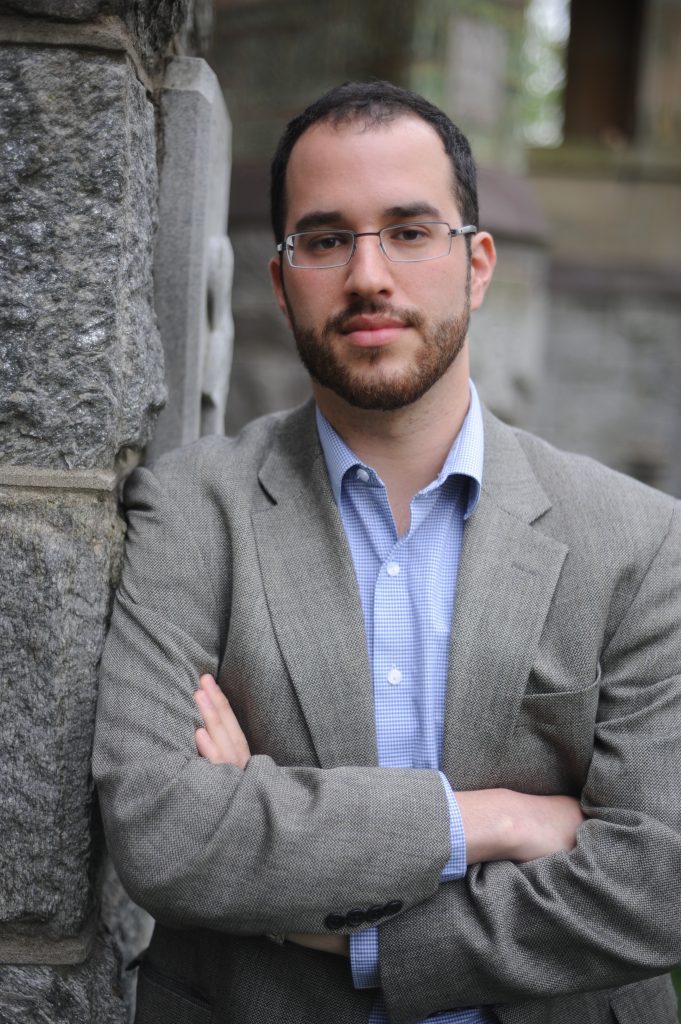Online Roundtable—Occupied Territory: Policing Black Chicago from Red Summer to Black Power

April 6–10, 2020
Black Perspectives, the award-winning blog of the African American Intellectual History Society (AAIHS), is collaborating with the Journal of Civil and Human Rights (JCHR)* to host an online roundtable on Simon Balto‘s Occupied Territory: Policing Black Chicago from Red Summer to Black Power (University of North Carolina Press, 2019). According to Keeanga-Yamahtta Taylor, “Simon Balto offers a much-needed history of policing in Chicago, clearly articulating the connection between the Chicago Police Department’s record of racism and abuse and its contemporary crisis of police brutality.”
The roundtable begins on Monday, April 6th and concludes on Friday, April 10th.
The roundtable will feature pieces from Melanie Newport (University of Connecticut), Max Felker-Kantor (Ball State University), Anne Gray Fischer (University of Texas at Dallas), and Dan Berger (University of Washington). At the conclusion of the roundtable, author Simon Balto (University of Iowa) will respond. All pieces will be published in an upcoming issue of the Journal of Civil and Human Rights.
During the week of the online roundtable, Black Perspectives will publish new blog posts every day at 5:30AM EST. Please follow Black Perspectives (@BlkPerspectives), the Journal of Civil and Human Rights (@CivilHumanRight), and AAIHS (@AAIHS) on Twitter; like AAIHS on Facebook; or subscribe to our blog for updates. By subscribing to Black Perspectives, each new post will automatically be delivered to your inbox during the week of the roundtable.
About the Author
Simon Balto teaches, researches, and writes about African American history in the United States. His first book, Occupied Territory: Policing Black Chicago from Red Summer to Black Power (University of North Carolina Press, 2019), explores the development of a police system in Chicago’s Black neighborhoods that over the course of the mid-twentieth century became simultaneously brutally repressive and neglectful. His writing has also appeared in TIME magazine, The Washington Post, The Progressive, the Journal of African American History, Labor, and numerous other popular and scholarly outlets.
Professor Balto is currently co-editing (with Erik Gellman) a volume that highlights new scholarship on the history of Black Chicago. He is also at work on two new solo-authored projects, one that explores the history of white criminals donning blackface in the commissioning of crimes, and the other on Fred Hampton — the twenty-one-year-old leader of the Illinois Black Panther Party who was assassinated by the Chicago Police Department in 1969.
Professor Balto earned his Ph.D. in History from the University of Wisconsin in 2015, where he also earned a Master’s Degree in African American Studies. He has been the recipient of grants and fellowships from the National Endowment for the Humanities and the Mellon Foundation, among others. Follow him on Twitter @SimonBalto.
About the Participants
 Melanie Newport is an Assistant Professor of US History at the University of Connecticut-Hartford and is affiliated faculty in American Studies and Urban and Community Studies. Melanie’s research focuses on the policies and institutions of urban criminal justice systems in the United States since the 1950s. She is currently working on a book that is tentatively titled Community of the Condemned: Chicago and the Transformation of American Jails, under contract with University of Pennsylvania Press. Looking to America’s largest jail, she explores how contests over reform, human rights, and race shaped everyday experiences of state violence among marginalized people in American cities. Follow her on Twitter @MelanieNewport.
Melanie Newport is an Assistant Professor of US History at the University of Connecticut-Hartford and is affiliated faculty in American Studies and Urban and Community Studies. Melanie’s research focuses on the policies and institutions of urban criminal justice systems in the United States since the 1950s. She is currently working on a book that is tentatively titled Community of the Condemned: Chicago and the Transformation of American Jails, under contract with University of Pennsylvania Press. Looking to America’s largest jail, she explores how contests over reform, human rights, and race shaped everyday experiences of state violence among marginalized people in American cities. Follow her on Twitter @MelanieNewport.
Max Felker-Kantor is a Visiting Assistant Professor of History at Ball State University who specializes in twentieth-century American and African American history with a focus on race, politics, and social movements. He is particularly interested in the policies and institutions of urban law enforcement and criminal justice systems since World War II. He received his PhD from the University of Southern California in 2014. His articles and book chapters have been published in the Journal of Urban History, Journal of Civil and Human Rights, Boom California, Black and Brown Los Angeles: A Contemporary Reader, the Pacific Historical Review, and the Casden Annual Review. Dr. Feker-Kantor’s book, Policing Los Angeles: Race, Resistance, and the Rise of the LAPD was published in the Justice, Power, and Politics series at the University of North Carolina Press in the fall of 2018. Follow him on Twitter @MFKantor.
 Anne Gray Fischer is an Assistant Professor of History at the University of Texas at Dallas. Her research and teaching unite Black feminist analysis and critical race studies to explore histories of gender, sexuality, and race; law enforcement and the state; and feminist activisms in the modern United States. She is writing a history of race and sexual policing between the fall of Prohibition in the 1930s and the rise of broken windows policing, or mass misdemeanor policing, in the 1980s. Dr. Fischer received a PhD in History from Brown University with a Certificate in Gender and Sexuality Studies. One essay adapted from her book manuscript appeared in the Journal of American History and another in “Social Histories of Neoliberalism,” a special issue of the Journal of Social History. Follow her on Twitter @AnneGrayFischer.
Anne Gray Fischer is an Assistant Professor of History at the University of Texas at Dallas. Her research and teaching unite Black feminist analysis and critical race studies to explore histories of gender, sexuality, and race; law enforcement and the state; and feminist activisms in the modern United States. She is writing a history of race and sexual policing between the fall of Prohibition in the 1930s and the rise of broken windows policing, or mass misdemeanor policing, in the 1980s. Dr. Fischer received a PhD in History from Brown University with a Certificate in Gender and Sexuality Studies. One essay adapted from her book manuscript appeared in the Journal of American History and another in “Social Histories of Neoliberalism,” a special issue of the Journal of Social History. Follow her on Twitter @AnneGrayFischer.
 Dan Berger is an Associate Professor of Comparative Ethnic Studies at the University of Washington at Bothell. His research emphasizes critical race theory, social movements, and American history, with a special focus on incarceration policy and the prison. He is interested in bottoms-up explorations of identity, politics, activism, and the state. Berger is the author or editor of several books, including The Hidden 1970s: Histories of Radicalism (Rutgers University Press, 2010) and the forthcoming Rethinking the American Prison Movement (coauthored with Toussaint Losier). His award-winning book Captive Nation: Black Prison Organizing in the Civil Rights Era (University of North Carolina Press, 2014) showed the central role prisoners played in the modern Black freedom struggle. Follow him on Twitter @dnbrgr.
Dan Berger is an Associate Professor of Comparative Ethnic Studies at the University of Washington at Bothell. His research emphasizes critical race theory, social movements, and American history, with a special focus on incarceration policy and the prison. He is interested in bottoms-up explorations of identity, politics, activism, and the state. Berger is the author or editor of several books, including The Hidden 1970s: Histories of Radicalism (Rutgers University Press, 2010) and the forthcoming Rethinking the American Prison Movement (coauthored with Toussaint Losier). His award-winning book Captive Nation: Black Prison Organizing in the Civil Rights Era (University of North Carolina Press, 2014) showed the central role prisoners played in the modern Black freedom struggle. Follow him on Twitter @dnbrgr.
* The Journal of Civil and Human Rights is a peer-reviewed, interdisciplinary, academic journal dedicated to studying modern US-based social justice movements and freedom struggles, including transnational ones, and their antecedents, influence, and legacies. The journal features research-based articles, interviews, editorials, state-of-the-field pieces, and book forums.
Copyright © AAIHS. May not be reprinted without permission.

